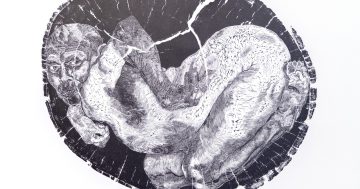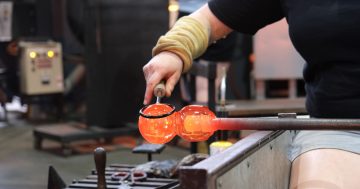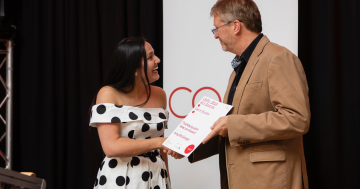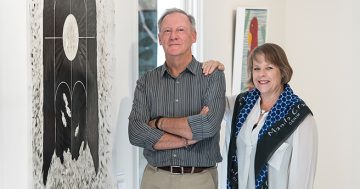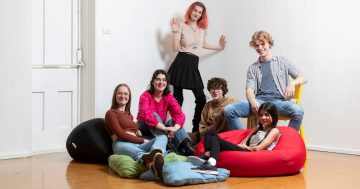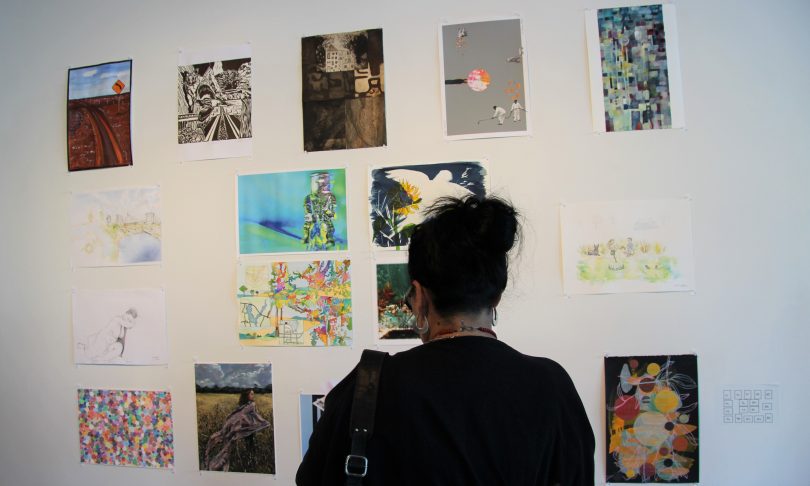
Artists can make a significant contribution to community resilience in difficult times. Photo: File.
When the reality of COVID-19 started sinking in, and the impact it would have on live events, galleries and theatres started to become known, a troubling rhetoric began to emerge about the validity of the arts as a career.
Artists who were suddenly facing their commissions drying up, their planned events being cancelled and their funding being rearranged (and in come cases not renewed), were confronted with the sneer of the collective Australian public saying, “Well, it’s about time you got a real job anyway”.
The implication is that choosing a career in the arts is an indulgence. That those of us who have ‘real’ jobs – that is, jobs that are not connected to our creativity or passions, but instead are built around the value of having secure employment with fair remuneration in exchange for very little control over the way we spend the majority of our waking hours – are practical in our approach to life.
Artists, on the other hand, clearly see themselves as being above the mundane drudgery the rest of us engage in, and now they’re paying the price (or so goes the narrative).
I noticed this ugly attitude early in the pandemic and recognised it as the same one I had witnessed my whole life, that made me choose a ‘safe’ career in communications and marketing rather than pursuing a full-time career as a writer of literature which would have been my preferred option.
Many of my friends are full-time artists. I have friends who are painters, playwrights, authors, costume designers, musicians, theatre managers.
They all lost work, some had to move from overseas back to Australia, many are uncertain if the commissions they had locked in for 2021 will proceed, and all are having to forge ahead despite very little in the way of targeted support to the industry from our government.
Those who have managed to cling to the edge of financial security are having to watch as beloved arts organisations and venues struggle to keep their doors open, which has major implications for future work for artists.
The attitude that their careers being shattered is really just something that was going to happen sooner or later, and that they should acknowledge their luck in being able to live off their art for this long, and quietly accept a transition into some other industry that better fits into our capitalist framework of employment, is one that speaks volumes about the way we value art in this country.
It is predicated on the notion that the meagre salaries and payments artists can expect for their work is genuinely representative of the value of that work. But that is, of course, not true – our society chooses to devalue the arts because the focus of all of our energies is money.
And we’ve defined money’s value in relation to very specific, tangible things, a mix of resources, services and products that are ‘necessary’ in contrast to the ‘unnecessary’ frivolity of the arts.
Except the arts aren’t an indulgence – they’re fundamental to not just our human nature, but to the entertainment that mainstream Australians expect to have access to daily.
The movies and television shows that have kept us sane during lockdown are art, the product of many years of combined arts practices from the actors, writers, producers and designers involved.
The podcasts we download, the music we turn to, the books we read – all of these things we value and rely on to support us emotionally through these strange and difficult times are products of the work of artists.
We consider art an indulgence because we have accepted the doctrine that accessing the resources we need to survive is difficult, and that only those with considerable privilege – the wealthy, the educated, the elite – can justify pursuing the arts as their sole occupation because their immediate needs are otherwise taken care of.
If this is the premise we accept to begin from, then yes, artists affected by COVID-19 deserve less sympathy than other workers who have lost jobs that could be considered less enjoyable than a career in the arts.
But this hierarchy of worthiness, when it comes to our empathy, is a construct of the unequal economic system we’re in, and one that we do not have to accept.
Zoya Patel is a writer and editor based in the ACT and was the 2015 ACT Young Woman of the Year.












